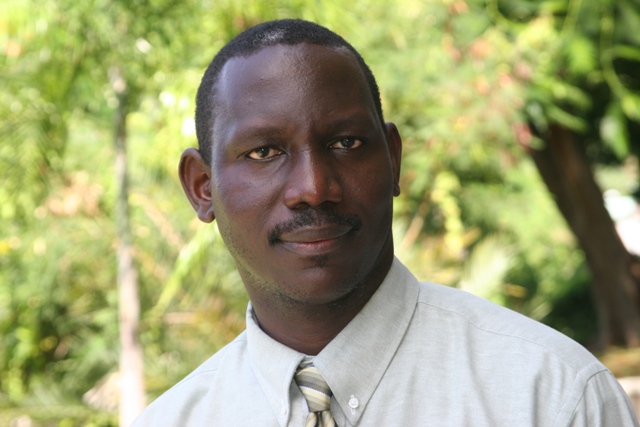Q & A with John Hanley, Executive Director of the Nevis Tourism Office

Q & A with John Hanley
Executive Director of the Nevis Tourism Office
By Jose Carlos de Santiago (STC-12, Bermuda)
“The training of human resources is a key factor to the development of sustainable tourism in the region. That’s so important because tourism is no doubt the powerhouse of the Caribbean.” That was John Henley, executive director of the Nevis Tourism Office (St. Kitts & Nevis) in his own words during an exclusive interview with Caribbean News Digital within the framework of the Sustainable Tourism Conference (STC-12) recently held in Bermuda.
Q: What’s your opinion of this STC-12 conference in Bermuda?
A: This conference is very important because it deals with tourism focused on the environment. All major tourism stakeholders have gathered here and all relevant information on how to proceed has been shared. In our case, our properties are modern and upscale, but we have that unique Caribbean flavor and that’s what we share with the other destinations.
Q: What are the major differences between the islands of St. Kitts and Nevis in terms of their policies, their administrations and other major issues?
A: Both islands make up one country, one of the most beautiful island nations on the planet. St. Kitts is twice the size of Nevis. Nevis is a small island. The environment in terms of sustainability, in my opinion, is much stronger in Nevis than in St. Kitts and I think I can substantiate that.
In Nevis we have emphasized on sustainable tourism and the proper use of energy. Over the past few years we’ve been exploring geothermal energy and we have dug three wells, especially on the western part of the island and close to the capital. These wells have proved to be useful in terms of the use of geothermal energy.
We now have plans very well in place and a geothermal energy plant is being built in Nevis which will provide about 8 megawatts of electricity on the first stage and then 10 megawatts, so we’ll have more than enough to meet our needs. Right now, Nevis also produces wind energy which accounts for around 20 percent of what the inland consumes. We also have plans in the offing to exploit solar energy, but not at this moment.
Q: How does your country’s travel industry focus on the European market?
A: European travelers are very much interested in history and culture, so part of the sustainable development has to do with the advance of the local history and the local culture, the heritage and the national monuments. In Europe we have strong ties with the UK because we are a former British colony, so that derives that European visitors are always drawn to our history.
Q: What do you make of the Russian market?
A: I’m not an expert in the Russian market but I do believe it’s a fairly wealthy market. There are several Russian people who own homes in Nevis. There are some high-end resorts in Nevis, like Four Seasons, that have gone after the Russian market.
Q: Does your country require entry visas for Russian citizens?
A: Yes.
Q: Do you believe this conference, this kind of meeting, can actually help bring all Caribbean people together?
A: This conference in Bermuda is quite important because we’re setting the trends that will be followed by future generations. That kind of effort takes training and development of human resources for that specific purpose, and that’s been one of the issues we have dealt with here in this conference. The training of human resources is a key factor to the development of sustainable tourism in the region. That’s so important because tourism is no doubt the powerhouse of the Caribbean.
Q: Do you think both the arts and gastronomy are also important for the promotion of the different Caribbean destinations?
A: Yes, that’s very important because our culinary aspects are part of our culture, it’s its flavor and what actually makes the Caribbean what we are. I must add that Nevis has the best cooking in the Caribbean because the people respect the ancient recipes and ways of cooking.














